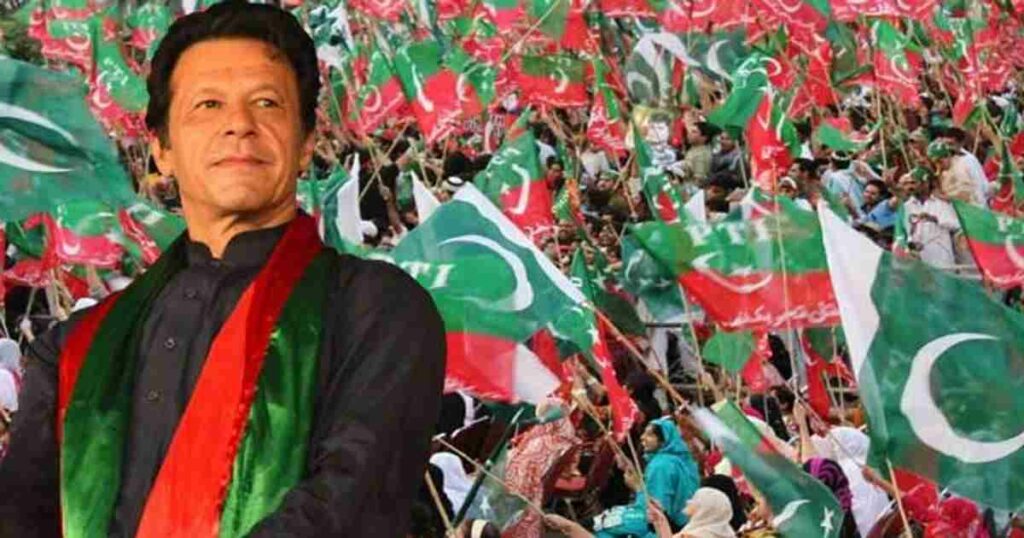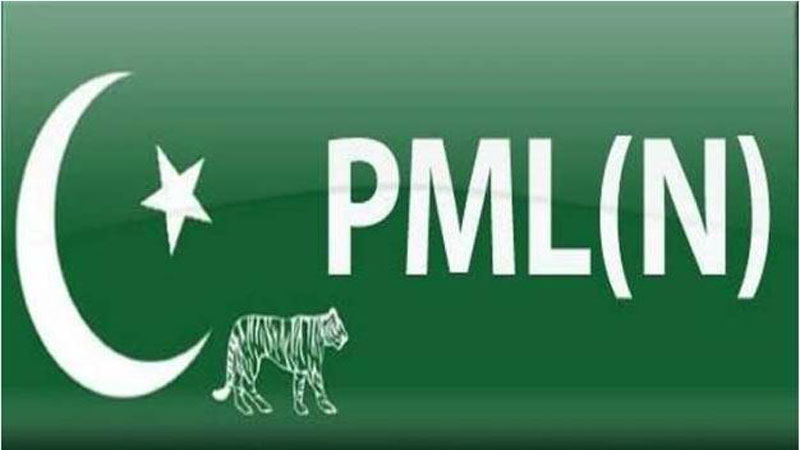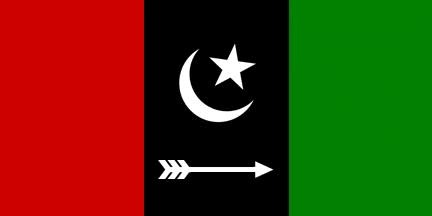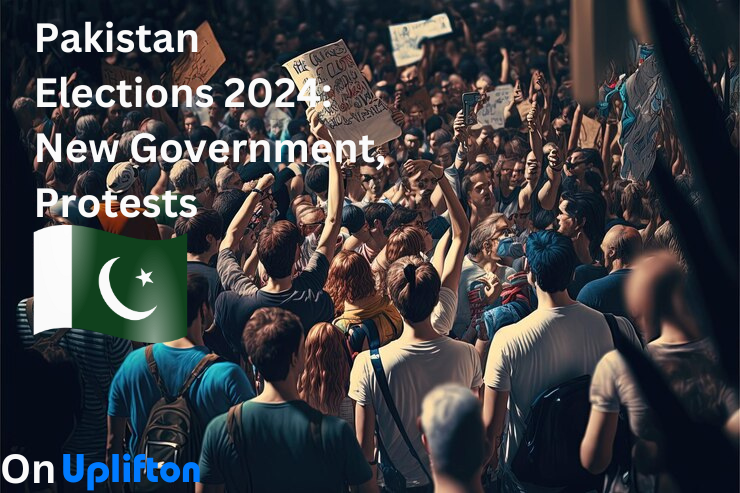Pakistan’s political landscape is undergoing a tumultuous transformation as alliances are forged and negotiations unfold to form a new government following the February Pakistan Elections 2024. While no party secured a clear majority, the results sparked both celebration and controversy, with accusations of rigging leading to ongoing protests.
Key Players and Alliances: A Deeper Dive of Pakistan Elections 2024
Pakistan’s evolving political landscape showcases a complex interplay of parties vying for power. Let’s dive deeper into the key players and alliances shaping the nation’s future:
1. PTI (Pakistan Tehreek-e-Insaf):

- Leadership: Imran Khan, a charismatic former Prime Minister, known for his populist appeal and anti-establishment rhetoric.
- Strengths: Strong support in Punjab and Khyber Pakhtunkhwa provinces, energized youth base.
- Weaknesses: Shortfall of seats, reliance on smaller, controversial allies.
- Alliances:
- Jamaat-e-Islami (JI): Conservative Islamist party with a strong presence in urban areas.
- Jamiat Ulema-e-Islam (JUI-N): Moderate religious party with influence in Balochistan and Khyber Pakhtunkhwa.
- Sunni Ittehad Council: Recently formed alliance of various Sunni religious groups.
2. PML-N (Pakistan Muslim League-Nawaz):

- Leadership: Shehbaz Sharif, experienced politician and current Chief Minister of Punjab.
- Strengths: Established party with strong organizational structure and rural support.
- Weaknesses: Corruption allegations against leadership, internal divisions.
- Alliances:
- Pakistan People’s Party (PPP): Traditional rival, led by Bilawal Bhutto Zardari, seeks power-sharing deal.
- Muttahida Qaumi Movement-Pakistan (MQM-P): Represents urban Sindhi community, crucial swing party.
- Smaller regional parties: Adding complexity to negotiations.
3. PPP (Pakistan People’s Party):

- Leadership: Bilawal Bhutto Zardari, young leader seeking to rebuild family legacy.
- Strengths: Strong support in Sindh province, historical popularity among some segments.
- Weaknesses: Internal divisions, perception of association with past corruption.
- Alliances:
- Open to negotiations: Seeking a role in any potential coalition government.
4. Independents:
- Significant number: Hold the balance of power in negotiations.
- Diverse motivations and ideologies: Add uncertainty to the equation.
- Key players: Some independents might form their own bloc or align with specific parties.
Intrigue and Instability:
These alliances are fluid, with negotiations ongoing and potential defections or mergers possible. The process is further complicated by allegations of rigging and ongoing protests. Political maneuvering and horse-trading are likely in the coming days, with the final shape of the government remaining uncertain.
Protests and Rigging Claims:
The PTI has vehemently rejected the election results, alleging widespread rigging. Their supporters have taken to the streets in protest, blocking highways and clashing with law enforcement. The Election Commission of Pakistan has promised an inquiry, but tensions remain high.
Economic Concerns and International Relations: Navigating a Turbulent Sea
Pakistan’s new government inherits a daunting set of economic and international challenges that require urgent attention.
Economic Concerns:
- Fragile Economy: High inflation, currency depreciation, and rising energy prices strain household budgets and hinder business activity.
- IMF Deal: Securing a much-needed loan from the International Monetary Fund (IMF) requires implementing tough austerity measures, potentially sparking further public discontent.
- Debt Burden: High external and internal debt burdens limit fiscal space for investments in essential sectors like healthcare and education.
- Climate Change: Recent floods highlight Pakistan’s vulnerability to climate disasters, requiring investments in infrastructure resilience and adaptation strategies.
International Relations:
- Regional Tensions: Complex relationships with India, Afghanistan, and Iran require delicate diplomatic maneuvering.
- US Relations: Repairing strained relations with the US, a key security and economic partner, is crucial.
- China-Pakistan Economic Corridor (CPEC): Managing this large-scale development project effectively and transparently is vital.
- Global Economic Uncertainties: Rising trade tensions and a potential global recession could further impact Pakistan’s export-dependent economy.
Uncertainties and Opportunities:
While the challenges are significant, opportunities exist. The new government can:
- Focus on Inclusive Growth: Implement policies that reduce inequality and create jobs, especially for the youth.
- Promote Trade and Investment: Foster an environment conducive to attract foreign direct investment and boost exports.
- Leverage Regional Cooperation: Utilize regional trade agreements and partnerships to expand market access and enhance economic integration.
- Prioritize Sustainable Development: Invest in renewable energy, climate-resilient infrastructure, and environmental protection.
- Strengthen Diplomacy: Engage constructively with regional and global partners to promote peace and stability.
The success of the new government will hinge on its ability to navigate these complex economic and international challenges, balancing immediate needs with long-term vision for a more prosperous and sustainable future for Pakistan.
Uncertainty and Hope: A Nation Poised at a Crossroads
Pakistan’s political landscape currently resembles a churning ocean, with waves of uncertainty crashing against the shores of potential hope. The ongoing negotiations to form a government are fraught with tension, fueled by accusations of rigging, shifting alliances, and the looming shadow of economic woes.
The Clouds of Uncertainty:
- Protests and Instability: PTI’s supporters remain vocal, their demands for fresh elections raising concerns about prolonged political instability.
- Fragile Alliances: The temporary partnerships cobbled together might crumble under the pressure of governing, leading to potential defections and further political upheaval.
- Lack of Trust: Deep distrust permeates the political spectrum, making consensus building and compromise especially challenging.
- Economic Pressures: The new government inherits a challenging economic landscape, requiring difficult decisions that could spark public backlash.
Glimmers of Hope:
- Potential for Compromise: Despite the current animosity, the possibility for dialogue and finding common ground cannot be entirely ruled out.
- Public Desire for Stability: Many citizens yearn for a stable government that can address pressing issues like inflation and unemployment.
- Independent Factor: Independent candidates, holding the balance of power, might prioritize national interests over party affiliations, fostering a more pragmatic approach.
- International Support: The international community has vested interests in a stable Pakistan and might offer support for democratic processes and economic development.
The Road Ahead:
The coming weeks and months will be crucial in determining the direction of Pakistan’s future. Whether the nation navigates the treacherous waters of uncertainty towards calmer shores of hope remains to be seen. Much will depend on the political actors’ willingness to prioritize national interests over personal agendas, the ability to bridge divides, and the commitment to upholding democratic principles.
However, one thing is certain: Pakistan stands at a pivotal moment, and the choices made by its leaders and citizens will have a lasting impact on the nation’s trajectory.
A Call for Unity and Action
Pakistan’s political landscape is in a state of flux, presenting both challenges and opportunities. While the path ahead is uncertain, the nation’s future ultimately resides in the hands of its leaders and citizens.
Leaders hold the responsibility to:
- Prioritize national unity and stability above personal and partisan interests.
- Engage in transparent and inclusive dialogue to bridge divides and foster consensus.
- Uphold democratic principles and ensure free and fair elections.
- Address the pressing economic challenges with swift and decisive action.
- Pursue regional and international partnerships for peace and development.
Citizens, too, have a crucial role to play by:
- Engaging in peaceful and constructive discourse.
- Holding their elected representatives accountable.
- Participating actively in the democratic process.
- Promoting tolerance and understanding across diverse communities.
The road ahead for Pakistan is fraught with challenges, but it is not without hope. Through collective effort, unity, and a commitment to shared values, the nation can navigate the current storms and emerge stronger, more prosperous, and more united.


